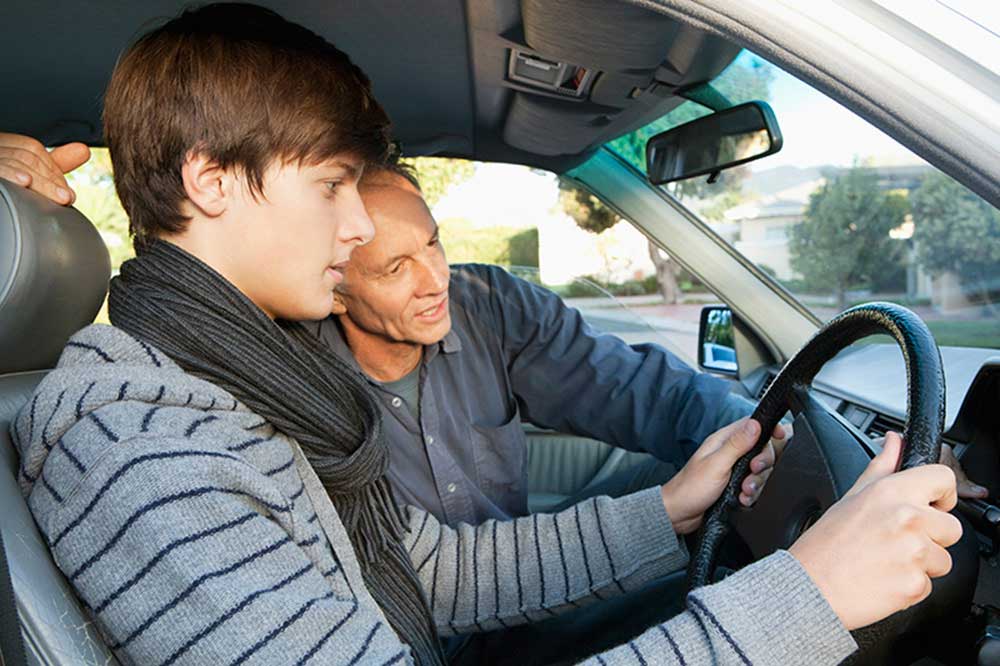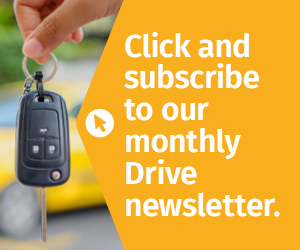Our guide to getting your driver's licence

Getting your driver's licence
Just turned 16? Good news – you can now apply for your learner licence. But before you hit the road, there are a few steps you need to take.
First, you'll need to complete PrepL or the written road rules test. You'll only have to complete one but keep in mind that Queensland will be phasing out the written road rules test in favour of PrepL.
One of the big differences between PrepL and the written test is that prospective learners are able to enrol from 15 years and 11 months old unlike the written test where you must be at least 16 years old. PrepL is an interactive program entirely online that teaches new drivers road rules and safe driving behaviours through a series of videos, scenarios and activities. Participants are then required to complete a 30 question multiple choice test and will need to get 90% to get your learners.
For those completing the written test, you'll need to visit a Department of Transport and Main Roads customer service centre, participating QGAP office, or a licence-issuing police station. This is where you'll hand over your driver licence application form, show your ID, pay the application fees, and most importantly, complete the written test. The written test has 30 multiple-choice questions about road rules and driver licence requirements.
While you shouldn't be too daunted by either test, you'll need to study up. So read Your keys to driving in Queensland, look at our driver skill videos and checklists, and run through an online practice test as many times as possible.
Logging your hours
When it comes to driving, practice really makes perfect. In fact, if you are 24 years old or under, you need to record 100 hours of supervised driving in your official learner logbook before you can even go for the practical test. RACQ Learner Driver app can also help you log your hours on the go.
While your parents will likely do the bulk of your supervising, it's worth squeezing in some professional lessons too. Driving instructors know the road rules and driving test requirements better than anyone. Plus, the first 10 hours of lessons count as 30 hours in your logbook. Members of the Free2Go program have access to discounts with selected driving schools and a free lesson with Keys2Drive. Plus, as a member of the Free2Go program, you'll also get access to free L & P-plates. Find out more about RACQ approved driving schools here.
If you're with Free2Go and unfortunate enough to have an accident while you're learning to drive in someone else's car and they have RACQ Comprehensive Insurance, they may be eligible to have the Basic Excess waived.
The driving test
Once you've logged enough hours, had your Ls for at least 12 months, and your logbook has been approved by Department of Transport and Main Roads, you can book in your practical driving test. On the day, make sure you arrive 10 minutes early and bring all the information you need to complete the test.
You'll be on the road for around 45 minutes. In this time, your examiner will give you tasks to perform during the test. If all goes well, you'll pass with flying colours and be issued a P1 licence. If you don't pass, don't be too hard on yourself. Just make sure you find out where you went wrong and try again after more practice.
Buying a car
Thought getting your licence was exciting? Well, there's nothing like owning your own set of wheels. But to find the right car, you need to think about factors such as:
- What you can afford
- New vs. used
- The type of car you want (and are legally allowed)
- Ongoing running costs
- Safety features
The information in this article has been prepared for general information purposes only and not as specific advice to any particular person. Any advice contained in the document is general advice and does not take into account any person's particular investment objectives, financial situation or needs. Before acting on anything based on this advice you should consider its appropriateness to you, having regard to your objectives, financial situations and needs.
Related topics
Things to note
The information in this article has been prepared for general information purposes only and is not intended as legal advice or specific advice to any particular person. Any advice contained in the document is general advice, not intended as legal advice or professional advice and does not take into account any person’s particular circumstances. Before acting on anything based on this advice you should consider its appropriateness to you, having regard to your objectives and needs.

